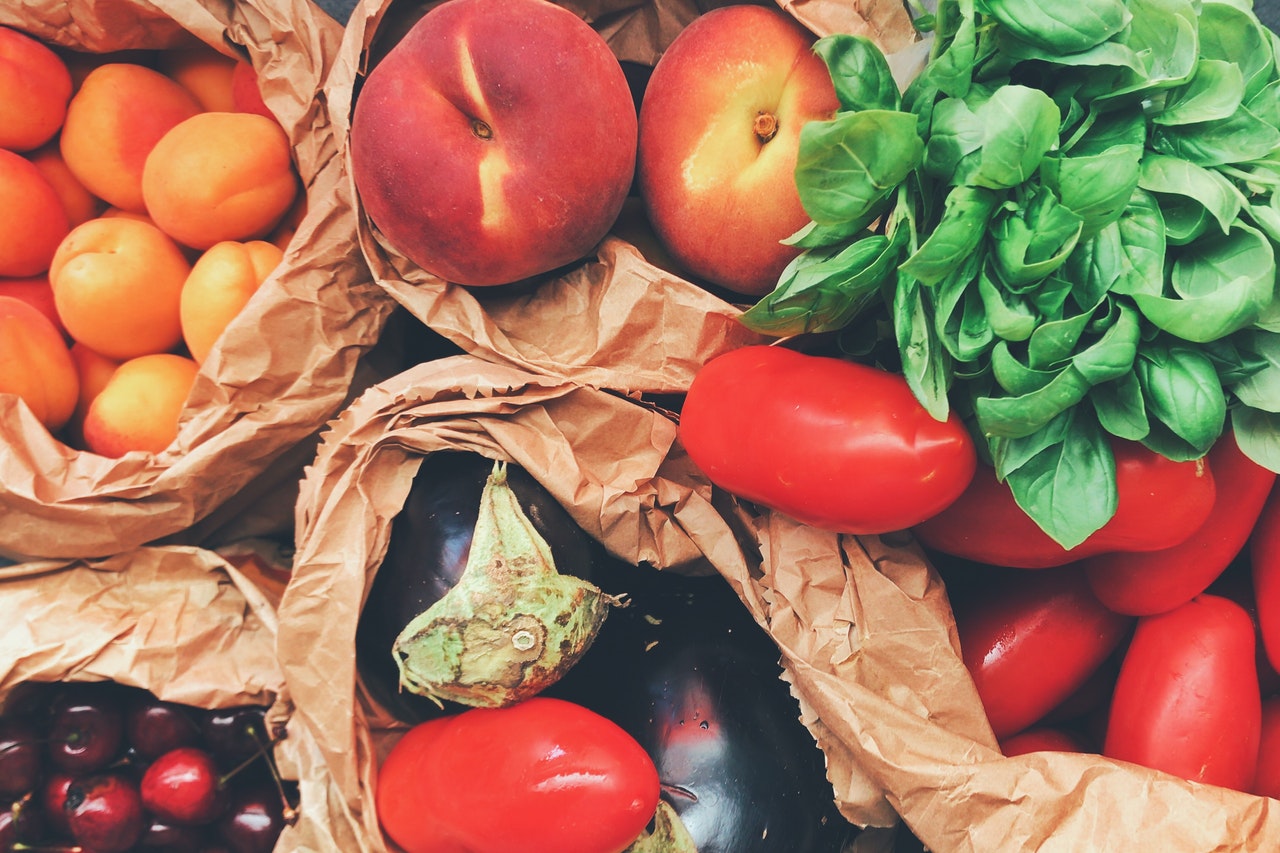When you feel like you are eating out of control in the quantity and/or quality of food you consume, you may feel the impulse to make dramatic changes to your diet ASAP. And while, at first glance, that may feel like the way to go, the reality is that it’s almost always a sure-fire recipe for turning those celery sticks into a boatload of brownie bites in nothing flat.
What if, instead, you focus for the next week or two on increasing the quantity of the delicious, healthy foods you eat, especially fruits and vegetables? I’m not suggesting that you banish everything that isn’t 100% healthy (unless your healthcare provider specifies otherwise), but rather that you become more mindful overall of consuming the delicious foods that nourish and energize you.
One of my favorite go-to resources for eating a healthy, balanced diet is Harvard’s Healthy Eating Plate. It creates a compelling visual, including a plate made up of 50% vegetables and fruits. It also gives some helpful guidance, without overwhelming, in terms of the quality of the foods we consume (for example, recommending that we aim for color and variety when it comes to vegetables and fruits). For those interested in a whole-food, plant-based diet (and with the approval of your physician), you may find Dr. Greger’s Daily Dozen smartphone app to be a great support. It’s available for iPhone and Android and provides an easy-to-use daily checklist of foods that support optimal health and longevity.
So, what foods do you enjoy that also nourish and energize you? In terms of vegetables, what about oven-roasted Brussels sprouts sprinkled with a little olive oil and salt and pepper? Or a large salad with Romaine lettuce, cherry tomatoes, matchstick carrot, and some shredded purple cabbage? What else would you like to include with your leafy greens – black beans, a few pumpkin seeds or something else?
When it comes to fruits, what about some wild blueberries with your morning oatmeal? A fruit salad with lunch? Or, a pureed frozen banana that tastes like ice cream for dessert after dinner? What other delicious and nutritious foods might you enjoy?
If you give yourself the gift of eating healthier foods over the next two weeks, what difference might that make for you? Perhaps fewer cravings for less healthy foods? Increased energy? More sensitive taste buds to better enjoy the healthy foods you want to eat? How else might you benefit?
Consider the possibilities for what changes you would like to make over the next two weeks. Think about baby steps if that would be helpful and make a plan. Put that plan into action, tweaking as needed, and find out just how much better you might feel. Generally speaking, when we eat well, we are more likely to feel well. Take good care of yourself. You’re likely to feel better if you do.


